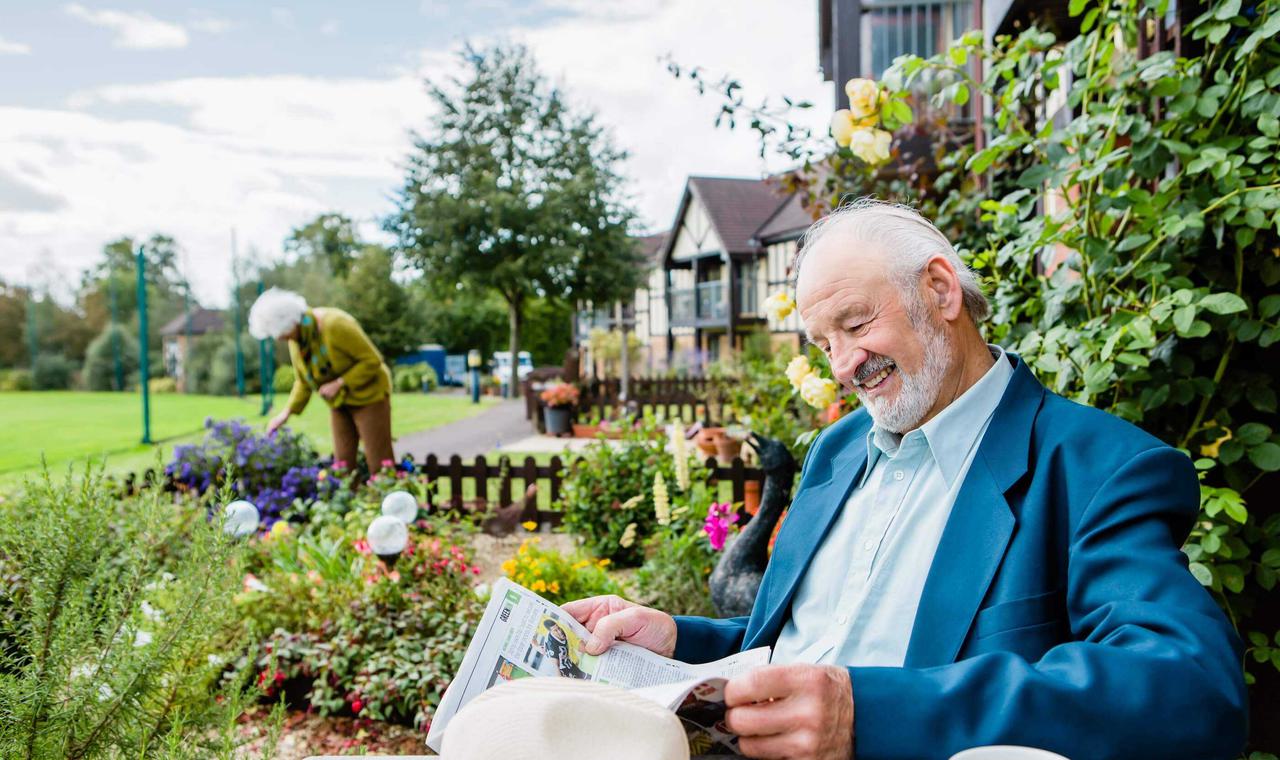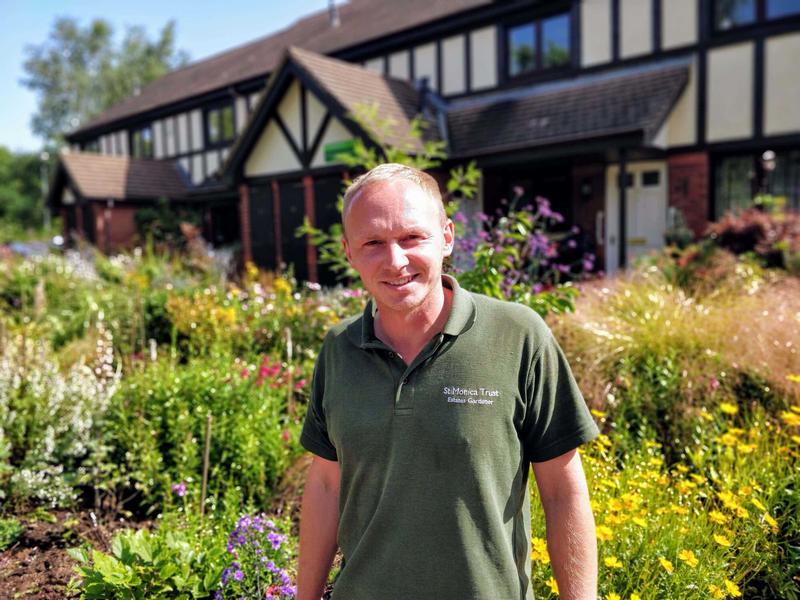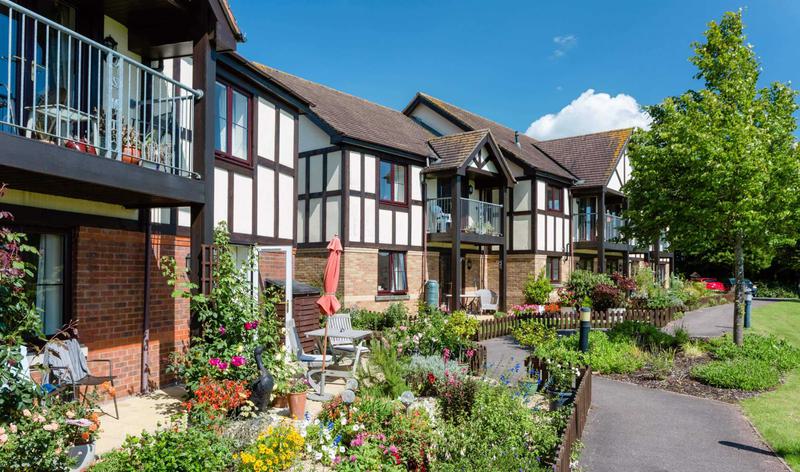
9 Tips for a Low Maintenance Garden in Retirement
For some of us retirement may be the perfect time to enjoy digging deeper than ever in the garden, a chance to finally do all those jobs you never managed while working. But many of us have other plans.
We want to spend more time with family, see friends, travel. Or changing health situations might mean we’re not able to mow our lawns quite as often as we used to. From the plants you choose to tools and technology, there are plenty of simple ways to create a low-maintenance garden in retirement. Here Andy Gore, a gardener at Westbury Fields retirement village in Bristol, shares his top tips.

There’s a huge amount of ongoing study around gardening and the positive impact on mental health. Physically, it gets you out and about and keeps you moving. Mentally, you’re in peace and quiet and it give you chance to let go of your everyday worries. You’re looking after the plants from seed and seeing them grow, which is massively rewarding. For me, it’s as simple as if you enjoy it then don’t stop. Why would you? Some things you might find more difficult as you age but there are plenty of ways to adapt your garden and how you look after it so that you can keep going for years to come.
Replace perennial plants with evergreen shrubs
These are generally slower to grow, will hold the structure in the garden and are normally less maintenance. You’ve still got a plant which flowers but you’ll need to tend to it less.
Set up an irrigation system
Watering your garden can be tricky as we’re getting older, especially if you’re using heavy watering cans or buckets and covering large areas. An irrigation / sprinkler system can make things a lot easier and will keep your garden well-watered year round.
Consider your pots carefully
A lot of people think pots are always easier. Though they can be in some situations, they also take a lot of maintenance, needing more watering and feeding. A small number is generally fine to look after, any more than that you might want to look at other options if you want to save time.
If mobility is an issue then raised planting beds can be a great way of keeping your gardening going. They come in all shapes and sizes, some can get wheelchairs underneath, and it’s a great way to stay involved in gardening.
Get the right tools for you
They are always adapting tools to suit the needs of people at different stages of life. You can get tools with extendable handles so that you will need to stretch and bend over less. They still perform the same action and can make all the difference between the gardening process being manageable or not.

Ask for help if you need it
If you need help then ask for it. You might consider hiring a gardener, speaking to the staff in your retirement accommodation or recruiting family members to lend a hand. A lot of family come into our retirement village and help with gardens - it’s a really nice thing to do together and can be great for relationships. That interaction is invaluable.
Rethink your lawn
They look great but lawns are really high maintenance. I think that’s probably one of the biggest things people don’t recognize - lawns are made up of tens of thousands of plants and over a large area it take a long time to mow. A friend of mine recently lawned his entire garden, thinking it would be low maintenance and it’s already knee-high!
If you’re keen to go really low-maintenance then consider paving or using gravel with a weed control lining underneath. In that case you’ll be able make ‘planting pockets’ in the gravel by cutting through the lining to expose the soil in particular areas and the lining will help suppress the weeds. There are quite a few gravel gardens here at Westbury Fields – it works but is more expensive than lawn. Weigh up the pros and cons based on your circumstances.
Wave goodbye to weeds
A simple trick to cut down on weeds, once you’ve replaced some plants with shrubs, is to put a thick layer of around 4-6 inches of compost or any organic matter on your planting beds and leave it. You’ll feed the borders, smother the weeds and the worms will dig it all in for you. It will save you masses of time!
Try out the no-dig system
When you plant something new, rather than digging over the whole bed just plant in the hole you’ve dug. Leave the rest. If you dig over the soil you’ll bring weed seeds to the surface and as soon as they get the light they will grow. Also you’ve damaged the soil organisms which benefit your plants. Plant in the pocket and leave the rest. You’ll make more work for yourself if not.
Right plant, right place
It’s a well-known saying but there really is a right plant for every location. Really read the label on the plant before buying and if you’re not sure ask your local garden centre for advice. It will save you wasting your money and if you get it flowering properly it’s a great feeling. There’s a plant for every area, you just need to find it.
Explore Westbury Fields
Westbury Fields is a welcoming retirement community with a cricket pitch at its heart. Located in suburban north Bristol, you’re within easy reach of the busy high street in Westbury-on-Trym and the illustrious Blaise Castle Estate just up the road. Experience the serenity of suburban living and an active social life in this picturesque and friendly village where there’s plenty to keep you busy. To find out more and download a brochure visit our main retirement village page.



